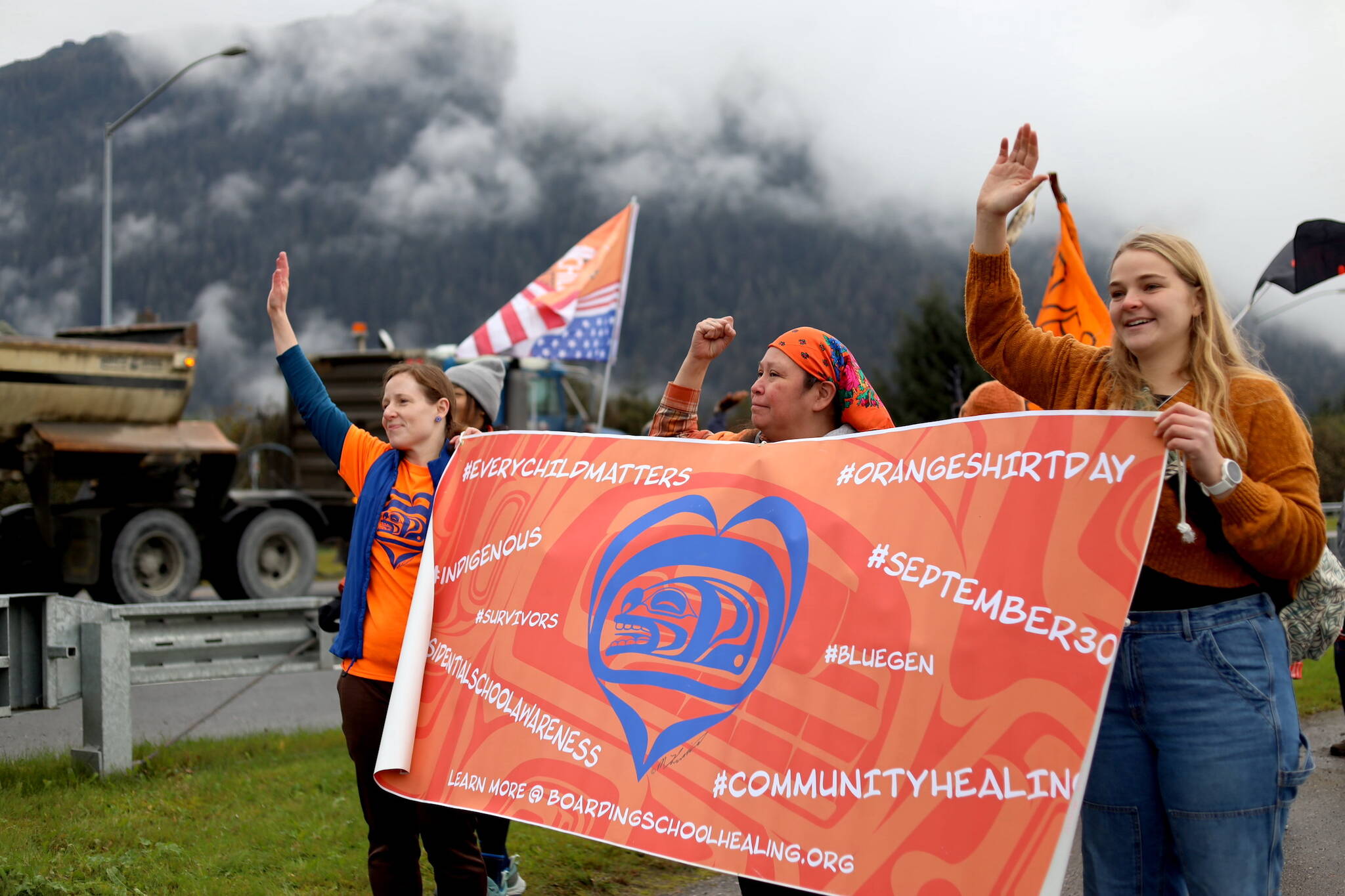The paint on Linda Jacobs’ sign was still wet when she arrived at the Mendenhall Wetlands viewing area in Juneau on Saturday morning.
Jacobs said she didn’t mind and, alongside more than a dozen other Juneau residents who attended the third-annual Orange Shirt Day morning flag wave, she waved it proudly to cars passing by as the paint dripped down.
“I’m here for all my grandparents, my family and the stories about what happened to them when they were growing up,” she said.
Orange Shirt Day is an international day dedicated to honoring survivors and families of the Indigenous boarding school system, and memorializing the children who didn’t return home. In Juneau an event was held Friday night along with another Saturday morning to commemorate the day.
“We’re speaking our truths,” said Jamiann S’eiltin Hasselquist, vice president of Juneau’s Alaska Native Sisterhood chapter and an event organizer. She said it’s important to remember the reason behind the day, to educate the Juneau community about Southeast Alaska’s ties to the residential boarding school era and the multigenerational trauma that still lingers from it today.
The first boarding school in Alaska was established in Sitka in 1878, according to the state archives, and many quickly began to appear across the state from then on. During the late 1800s and throughout the 1900s many Alaska Native children were sent away from their families, communities and culture to boarding schools in the state — or across the country — and were forced to divorce themselves of their Indigenous identity in exchange for Euro-American values and culture.
Though many boarding schools were closed by the late 1900s, the legacy of trauma and abuse from these schools still remains for many Alaska Native families and communities in Juneau today.
“Finding out why, and talking about those experiences, heals us and future generations. It makes a beautiful, healing ripple effect,” Hasselquist said. “Having the reaction of cars going by honking with all that good energy, sending energy back to us just really lifts us up.”
For Chelsea Miller, she commemorates the day for her grandmother, who was a victim of assimilation, and who she said wasn’t allowed the chance to learn about her Haida and Tsimshian culture. On Saturday, Miller was joined by her three-year-old daughter at the event. Though her daughter is young, Miller said it’s important for her to be at events like this and one day hopefully understand the meaning behind the day.
“I’m not sure how much she understands, but I did explain to her why we’re here, why we remember and why we wear orange,” she said. “I just want her to know the truth, what really happened and how we came together.”
• Contact reporter Clarise Larson at clarise.larson@juneauempire.com or (651) 528-1807.

